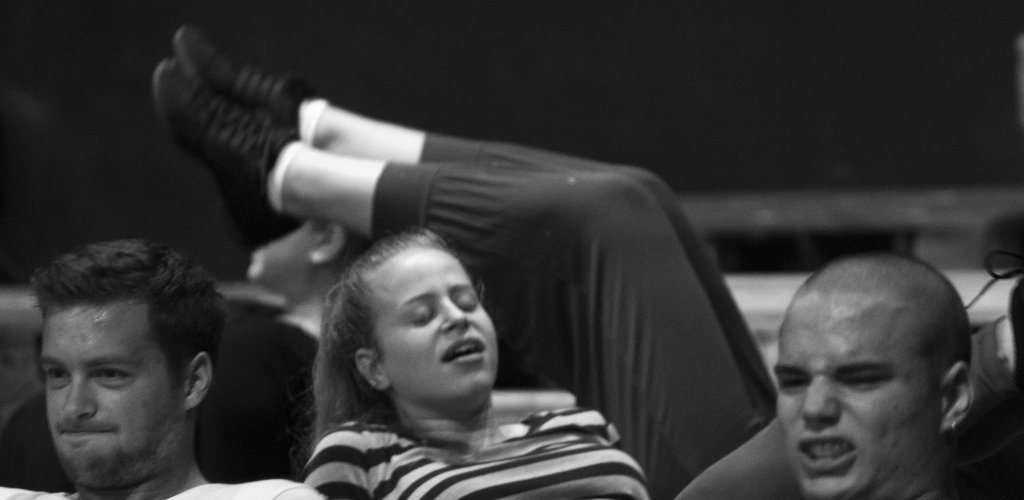Do you remember the TV programme from the 1990s referred to in the title? The one-hour broadcast dealt with important social or personal problems, showing different crises through films produced in Brazil in very poor quality where the protagonist was offered a choice. The decision, however, was made by the audience, and accordingly, one of the two endings to the film was broadcast – the consequence of the other decision was never revealed.
Although the latter part was different for the latest opera production of the
Budapest Festival Orchestra, the “whys” and “hows” of these two examples are quite similar. I mentioned the performance in question and left out the author and the composer of the piece, Bertolt Brecht and Kurt Weill, for a reason: if the attendees had not been informed or prepared, they could easily have been misled and thought that everything they saw from the beginning to the end reflected the author’s intention – both the boy’s choice between life and death and the consecutive performance of the two alternative endings. That is not quite right: in fact, the school opera entitled
Der Jasager (
The Yes Sayer) aimed at children and intended to be performed by children only contains one of the endings – the protagonist says yes to the observance of the old custom and chooses to die. Later, however, Brecht decided to write
Der Neinsager,
the opposite of the thirty-minute opus – Weill did not compose music for this, so the music of the former and the lyrics of the latter were coupled together this time.
But what situation is it exactly in which the boy has to decide between life and death? The short opera born of the revised version of a Japanese Nō drama has a really simple plot. The teacher is about to go on a journey, and the boy taking care of his sick mother on his own wishes to join. He aims to get medicine for her, and sticks to his decision despite warnings about the dangers of the physically demanding journey from both the teacher and the beloved mother. Unfortunately, the teacher’s prediction proved to be correct: the boy falls to the ground on the way, and cannot continue the journey. He has to decide: everyone can turn back and take him home, or he agrees to follow the old custom of the community and be thrown into a precipice, enabling the others to go on. When he says yes, he opts for the extreme respect of the community’s wishes – when he says no, he reasons that even laws can be changed if they happen to be bad.
Do we really have to explain why this seemingly too educational and direct school opera proved to be a good choice? I think the issue concerning the dividing line between accepting majority opinions and being blind to one’s own interests to serve others’ interests is still a hot potato in Hungary in 2014, as is the consideration of the limit we have to reach to finally change an old rule everyone accepts
for real. If the piece by Brecht and Weill is going to be played again and again for school children after this performance – similarly to the Festival Orchestra’s previous mini-opera performances – then I think it will be one of the most important
pedagogical events of the coming school year.
Both the subject matter and the rendering of the
Jasager/Neinsager is strongly related to other well-known pieces of the Brecht oeuvre: the moral is clearly conveyed in both versions, and listeners must make their own decision by thinking over the situation and not dealing with it from an emotional perspective. Weill’s music is top quality in every detail, and being so illustrative – despite the author’s intention, or perhaps not – it often exerts an effect on our emotions in its own simplicity. It was quite similar to the performance arranged by
Eszter Novák where naturality almost lacked any instrument, and where the suggestive nature of the acting and speaking, which today seems to be forgotten, gave us food for thought. It did so because the trio of
Dávid Vizi (Teacher),
Balázs Szántó (Boy) and
Lilla Kádár (Mother), second-year students of the University of Theatre Arts playing the main roles, met the requirements of this type of acting perfectly. Did they sing in an operatic voice? No, they certainly did not, and yes, some of them even had intonation problems every now and then. But they understood and were able to convey the meaning; so the lack of beautiful singing served as an important tool in the alienation effect Brecht once dealt with. Anonymous heroes of the internet who are proud to tell everyone they do not want to think during an opera performance would probably be upset and object to such a cast – what a pity they did not appear to give the piece a chance (because it was mainly teachers and relatives of the actors sitting in the audience). As for me, it was great to observe the difference between the theatrical and musical language of Brecht and Weill.
This time the Budapest Festival Orchestra was conducted by
Zsolt Jankó. His solid and precise work not only emphasised the values of Weill’s music, but also suggested that this young man, who is deservedly popular in Cluj-Napoca and Oradea, should also be brought to the attention of Budapest audiences at last.
The original article is available here.

